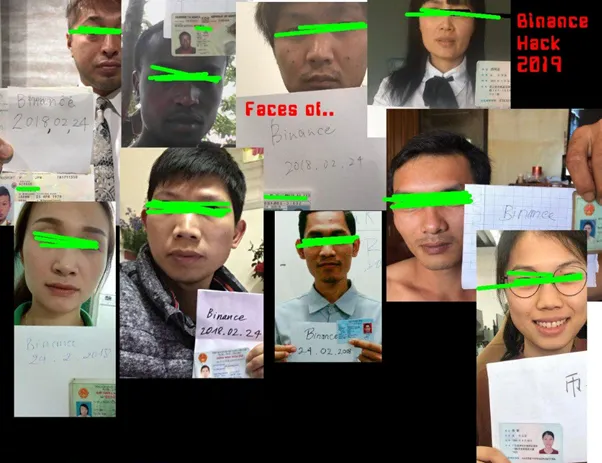-
 @ c1e9ab3a:9cb56b43
2025-05-27 16:19:06
@ c1e9ab3a:9cb56b43
2025-05-27 16:19:06Star Wars is often viewed as a myth of rebellion, freedom, and resistance to tyranny. The iconography—scrappy rebels, totalitarian stormtroopers, lone smugglers—suggests a deep anti-authoritarian ethos. Yet, beneath the surface, the narrative arc of Star Wars consistently affirms the necessity, even sanctity, of central authority. This blog entry introduces the question: Is Star Wars fundamentally a celebration of statism?
Rebellion as Restoration, Not Revolution
The Rebel Alliance’s mission is not to dismantle centralized power, but to restore the Galactic Republic—a bureaucratic, centrally governed institution. Characters like Mon Mothma and Bail Organa are high-ranking senators, not populist revolutionaries. The goal is to remove the corrupt Empire and reinstall a previous central authority, presumed to be just.
- Rebels are loyalists to a prior state structure.
- Power is not questioned, only who wields it.
Jedi as Centralized Moral Elites
The Jedi, often idealized as protectors of peace, are unelected, extra-legal enforcers of moral and military order. Their authority stems from esoteric metaphysical abilities rather than democratic legitimacy.
- They answer only to their internal Council.
- They are deployed by the Senate, but act independently of civil law.
- Their collapse is depicted as tragic not because they were unaccountable, but because they were betrayed.
This positions them as a theocratic elite, not spiritual anarchists.
Chaos and the Frontier: The Case of the Cantina
The Mos Eisley cantina, often viewed as a symbol of frontier freedom, reveals something darker. It is: - Lawless - Violent - Culturally fragmented
Conflict resolution occurs through murder, not mediation. Obi-Wan slices off a limb; Han shoots first—both without legal consequence. There is no evidence of property rights, dispute resolution, or voluntary order.
This is not libertarian pluralism—it’s moral entropy. The message: without centralized governance, barbarism reigns.
The Mythic Arc: Restoration of the Just State
Every trilogy in the saga returns to a single theme: the fall and redemption of legitimate authority.
- Prequels: Republic collapses into tyranny.
- Originals: Rebels fight to restore legitimate order.
- Sequels: Weak governance leads to resurgence of authoritarianism; heroes must reestablish moral centralism.
The story is not anti-state—it’s anti-bad state. The solution is never decentralization; it’s the return of the right ruler or order.
Conclusion: The Hidden Statism of a Rebel Myth
Star Wars wears the costume of rebellion, but tells the story of centralized salvation. It: - Validates elite moral authority (Jedi) - Romanticizes restoration of fallen governments (Republic) - Portrays decentralized zones as corrupt and savage (outer rim worlds)
It is not an anarchist parable, nor a libertarian fable. It is a statist mythology, clothed in the spectacle of rebellion. Its core message is not that power should be abolished, but that power belongs to the virtuous few.
Question to Consider:
If the Star Wars universe consistently affirms the need for centralized moral and political authority, should we continue to see it as a myth of freedom? Or is it time to recognize it as a narrative of benevolent empire? -
 @ dfa02707:41ca50e3
2025-05-29 07:02:29
@ dfa02707:41ca50e3
2025-05-29 07:02:29Contribute to keep No Bullshit Bitcoin news going.
- Coinswap is a decentralized protocol for private, trustless cryptocurrency swaps. It allows participants to securely swap digital assets without intermediaries, using advanced cryptographic techniques and atomic swaps to ensure privacy and security.
- This release introduces major improvements to the protocol's efficiency, security, and usability, including custom in-memory UTXO indexes, more advanced coin-selection algorithms, fidelity bond management and more.
- The update also improves user experience with full Mac support, faster Tor connections, enhanced UI/UX, a unified API, and improved protocol documentation.
"The Project is under active beta development and open for contributions and beta testing. The Coinswap market place is live in testnet4. Bug fixes and feature requests are very much welcome."
- Manuals and demo docs are available here.
What's new
- Core protocol and performance improvements:
- Custom in-memory UTXO indexes. Frequent Core RPC calls, which caused significant delays, have been eliminated by implementing custom in-memory UTXO indexes. These indexes are also saved to disk, leading to faster wallet synchronization.
- Coin selection. Advanced coin-selection algorithms, like those in Bitcoin Core, have been incorporated, enhancing the efficiency of creating different types of transactions.
- Fidelity management. Maker servers now automate tasks such as checking bond expiries, redemption, and recreation for Fidelity Bonds, reducing the user's management responsibilities.
- Taker liveness. The
WaitingFundingConfirmationmessage has been added to keep swap connections between Takers and Makers, assisting with variable block confirmation delays.
-
User experience and compatibility:
- Mac compatibility. The crate and apps now fully support Mac.
- Tor operations are streamlined for faster, more resilient connections. Tor addresses are now consistently linked to the wallet seed, maintaining the same onion address through system reboots.
- The UI/UX improvements enhance the display of balances, UTXOs, offer data, fidelity bonds, and system logs. These updates make the apps more enjoyable and provide clearer coin swap logs during the swap process.
-
API design improvements. Transaction creation routines have been streamlined to use a single common API, which reduces technical debt and eliminates redundant code.
- Protocol spec documentation now details how Coinswap breaks the transaction graph and improves privacy through routed swaps and amount splitting, and includes diagrams for clarity.

Source: Coinswap Protocol specification.

-
 @ 7f6db517:a4931eda
2025-05-29 07:02:50
@ 7f6db517:a4931eda
2025-05-29 07:02:50
What is KYC/AML?
- The acronym stands for Know Your Customer / Anti Money Laundering.
- In practice it stands for the surveillance measures companies are often compelled to take against their customers by financial regulators.
- Methods differ but often include: Passport Scans, Driver License Uploads, Social Security Numbers, Home Address, Phone Number, Face Scans.
- Bitcoin companies will also store all withdrawal and deposit addresses which can then be used to track bitcoin transactions on the bitcoin block chain.
- This data is then stored and shared. Regulations often require companies to hold this information for a set number of years but in practice users should assume this data will be held indefinitely. Data is often stored insecurely, which results in frequent hacks and leaks.
- KYC/AML data collection puts all honest users at risk of theft, extortion, and persecution while being ineffective at stopping crime. Criminals often use counterfeit, bought, or stolen credentials to get around the requirements. Criminals can buy "verified" accounts for as little as $200. Furthermore, billions of people are excluded from financial services as a result of KYC/AML requirements.
During the early days of bitcoin most services did not require this sensitive user data, but as adoption increased so did the surveillance measures. At this point, most large bitcoin companies are collecting and storing massive lists of bitcoiners, our sensitive personal information, and our transaction history.
Lists of Bitcoiners
KYC/AML policies are a direct attack on bitcoiners. Lists of bitcoiners and our transaction history will inevitably be used against us.
Once you are on a list with your bitcoin transaction history that record will always exist. Generally speaking, tracking bitcoin is based on probability analysis of ownership change. Surveillance firms use various heuristics to determine if you are sending bitcoin to yourself or if ownership is actually changing hands. You can obtain better privacy going forward by using collaborative transactions such as coinjoin to break this probability analysis.
Fortunately, you can buy bitcoin without providing intimate personal information. Tools such as peach, hodlhodl, robosats, azteco and bisq help; mining is also a solid option: anyone can plug a miner into power and internet and earn bitcoin by mining privately.
You can also earn bitcoin by providing goods and/or services that can be purchased with bitcoin. Long term, circular economies will mitigate this threat: most people will not buy bitcoin - they will earn bitcoin - most people will not sell bitcoin - they will spend bitcoin.
There is no such thing as KYC or No KYC bitcoin, there are bitcoiners on lists and those that are not on lists.
If you found this post helpful support my work with bitcoin.

-
 @ 2b998b04:86727e47
2025-05-28 23:24:05
@ 2b998b04:86727e47
2025-05-28 23:24:05I’ve spent years chasing the promise of freedom.\ In startups. In faith communities. In movements that claimed to be for the people.
And yet — so often, that promise felt just out of reach.\ Conditional. Corporate. Sanitized.\ A freedom with fine print.
But here —\ Here in the thick of Bitcoin 2025, on Nostr, among misfits and builders and signal-bringers —\ something is alive.
It’s not a platform.\ It’s not a marketing strategy.\ It’s not another app promising to “empower” you while locking down your data and selling you out.
It’s freedom rooted in architecture.\ Decentralization not just as a buzzword —\ but as an expression of conviction.
A kind of freedom you can feel in your body:
-
When you zap someone’s words because they moved you — not because an algorithm told you to.
-
When your identity is yours — keys, not credentials.
-
When no one can delete your story because you control the server, or because there is no server — just the relay of your choosing.
This isn’t utopia.\ There are egos. There’s noise. There’s still posturing.\ But it’s different.\ The center of gravity has shifted.
We’re no longer begging institutions to notice us.\ We’re building outside their jurisdiction.
And for the first time in a long time,\ freedom feels close.\ Tangible.\ Joyful.\ Alive.
This isn’t just about tech.\ It’s about trust.\ It’s about choosing to show up —\ to build\ to write\ to signal\ to keep going.
Even when it’s hard.\ Even when no one claps.
Because real freedom doesn’t come from being noticed.\ It comes from being sovereign.
And that’s something no one can take from me again.
—
Written in Las Vegas, during Bitcoin 2025.\ Posted via Nostr. Vibes co-authored by ChatGPT (“Dr. C”).\ Zap: https://tinyurl.com/yuyu2b9t
-